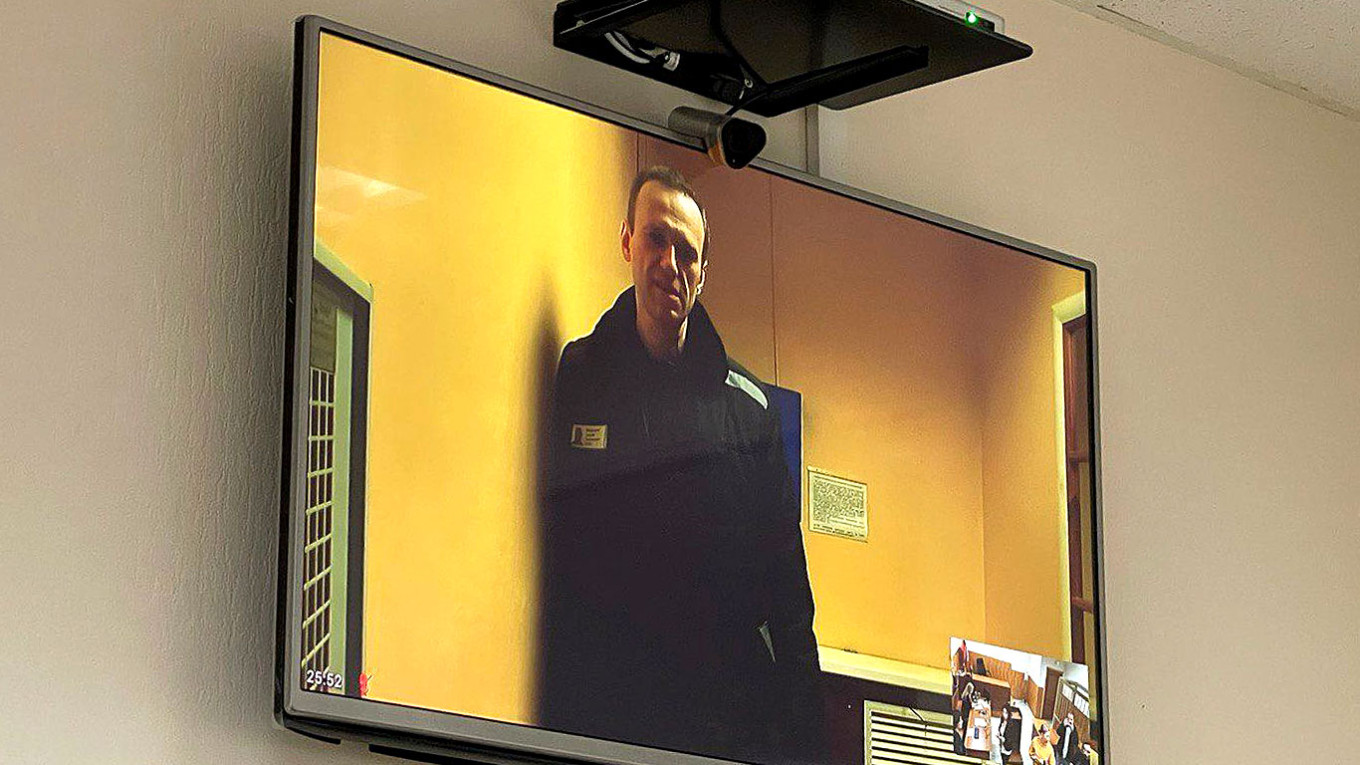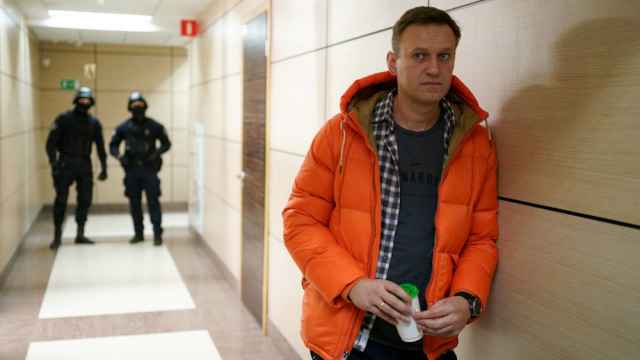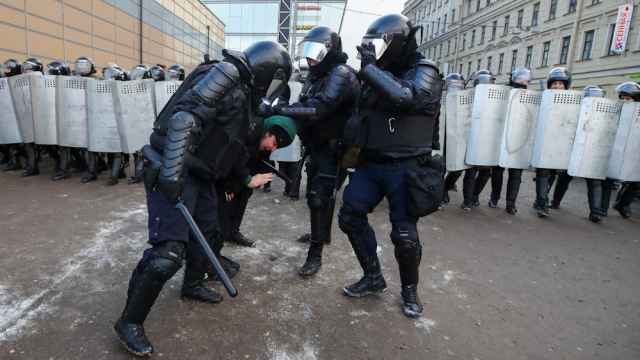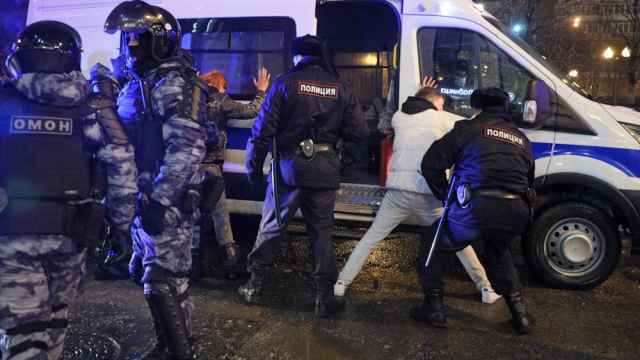The arrest of three lawyers representing jailed opposition leader Alexei Navalny this month came as a shock to those who worry about the rule of law in Russia. A fourth has fled the country. This could not be further from the rose-tinted image people have when they set out to become a lawyer: a successful professional wearing an expensive suit and winning case after case. For me, all that glamor has gone. What remains is fear, and the need to carefully assess the risks of each case I take on.
I am convinced that these arrests are a product of the state’s campaign against Navalny, rather than against lawyers specifically. But they still signal that lawyers are finding themselves in an increasingly vulnerable position. They no longer receive special protection from the state or, even more regrettably, from the Federal Bar Association, which is supposed to protect them. I grappled with this knowledge when I was approached to defend Navalny. Of course, I was afraid when I was offered the job. And I am still afraid.
Veterans of the Russian Bar like to remind practicing lawyers like myself that our profession stretches back to the era of Tsar Alexander II in the mid-19th century, when our courts were independent and ran on fair principles. This constant appeal to the past raises many doubts. What does our past have to do with our present? Are we really where our esteemed ancestors wanted us to be?
Indeed, modern legal practice in Russia is set up in a way that should ensure high standards. Candidates must meet high ethical requirements and undergo expensive training to pass an extremely difficult exam. One must have idealistic views to decide to become a lawyer in these difficult times — especially a criminal defense lawyer.
Every Russian lawyer swears an oath to protect the rights of their clients “guided by the Constitution of the Russian Federation, the law and the lawyers’ code of professional ethics." But it is these same laws we swear to uphold, or rather how they are applied, that do not allow us to fulfill our duty with dignity.
The state has created a hostile environment for lawyers. Their rights are regularly violated. I personally was beaten by officers from the Interior Ministry’s Grom (“Thunder”) police unit in 2021. During mass arrests at street protests in recent years, lawyers were barred from entering police stations to help their clients. The large number of restrictions imposed on their work does not allow them to fully protect the rights and legitimate interests of their clients.
Attorneys often lack the ability to feel needed and heard by the government and society. This is not sentimentality — it directly depends on what result the client receives in a criminal case, where guilt is assumed by default. If, as a result of the court’s accusatory approach, a lawyer fails to defend their client, then — after the defendant receives his punishment — the lawyer is left alone with the client, his pain and his problems. Not only that, but they must face the pain and grief of the client’s loved ones. This pain cannot be easily taken away by blaming the state. One way or another, the lawyer will still be at fault. Somewhere, they failed to rise to the occasion and provide the defense their client needed. In short, the system does not offer an excuse for lawyers perceived to have done their job badly.
The reality of the modern Russian court presents three key problems for lawyers. Firstly, the long stretch of time, routinely extended, between an arrest and trial means there is hardly any possibility of securing an early release. There are cases of such releases, but they are the result of luck rather than the excellent work of a lawyer (though I am sure that lawyers always skillfully argue for their client’s release, even if their arguments are ignored by the court).
Secondly, lawyers in criminal cases face obstacles in obtaining the information and evidence they need to defend their clients. Organizations and officials are required by law to respond within 30 days to a lawyer's request for evidence. This period is too long, with no sense of urgency. Requests are ignored because the penalty for ignoring is negligible, and many people simply feel no obligation to respond.
Thirdly, in general, the court is not disposed to give the defense a fair hearing. Since there are no special rules for evaluating evidence, the court is inclined to look for arguments that will destroy the position of the defense rather than subject both sides to proper evaluation.
Russian prisons are generally unpleasant places for lawyers. But the atmosphere in the prison colony where Navalny is held is on a whole new level. My papers are tightly controlled and under constant censorship. Not only does this affect the documents passed to and from my client, but even my personal notes, which are taken from me so the authorities can make copies. I have never seen anything like this before. This, of course, must be fought. But I am not very optimistic about the chances of changing it.
When deciding whether to take up this case, I tried to look at it from the principles of our profession. The case is interesting. I have the opportunity and time to help, as well as the necessary experience. So why should I refuse? I feel this is a case that defines my value as an ethical professional. In no way would I condemn colleagues who would have refused to defend Navalny out of concern for their own safety. Such are the times we live in. But I realized that if I refused to defend him, it could mark the end of my time in this profession, as I would have failed to uphold my oath.
I don't want to live in such a way that fear determines my choices when I have the experience and financial stability to take risks. Our whole society is gripped with fear, and I don’t want that to determine our future. I hope that sooner or later this period in our country’s history will come to an end, and that judges will find the courage to uphold the laws and the ethical standards they swore to abide by.
Only after we can once again exercise our rights fearlessly can we talk about building a more just and free society. We cannot become complacent and watch what is happening like we would watch a movie. In the meantime, I would consider that my small part in this effort will help me leave my fear behind.
A Message from The Moscow Times:
Dear readers,
We are facing unprecedented challenges. Russia's Prosecutor General's Office has designated The Moscow Times as an "undesirable" organization, criminalizing our work and putting our staff at risk of prosecution. This follows our earlier unjust labeling as a "foreign agent."
These actions are direct attempts to silence independent journalism in Russia. The authorities claim our work "discredits the decisions of the Russian leadership." We see things differently: we strive to provide accurate, unbiased reporting on Russia.
We, the journalists of The Moscow Times, refuse to be silenced. But to continue our work, we need your help.
Your support, no matter how small, makes a world of difference. If you can, please support us monthly starting from just $2. It's quick to set up, and every contribution makes a significant impact.
By supporting The Moscow Times, you're defending open, independent journalism in the face of repression. Thank you for standing with us.
Remind me later.








